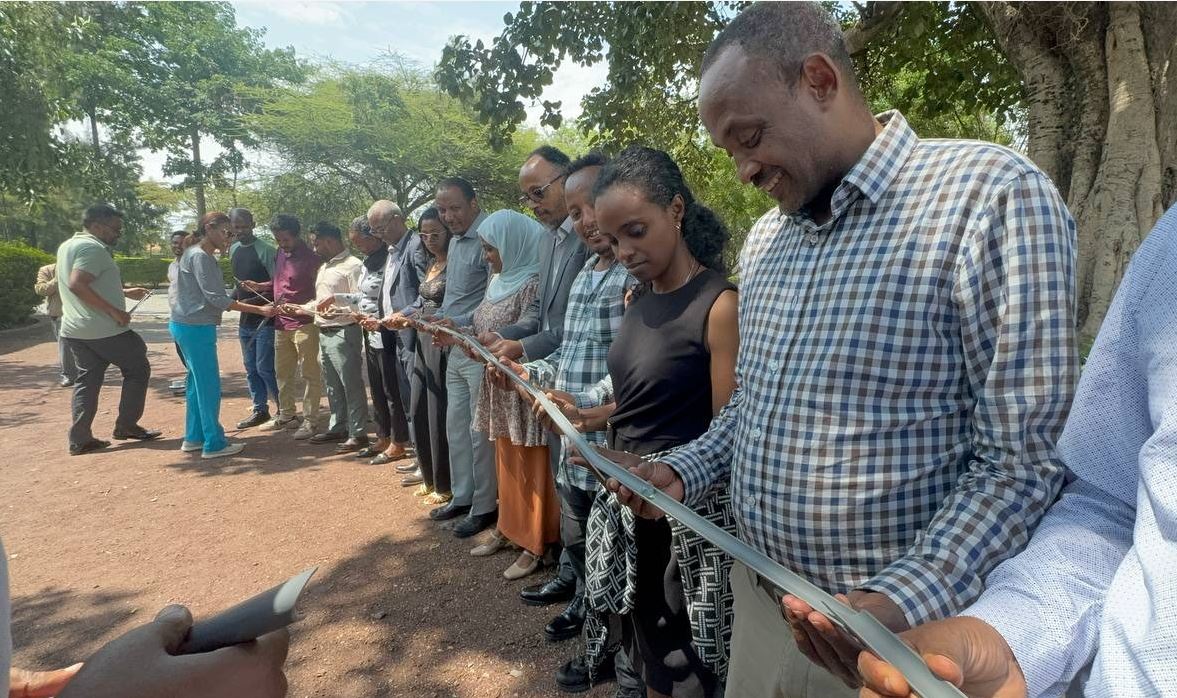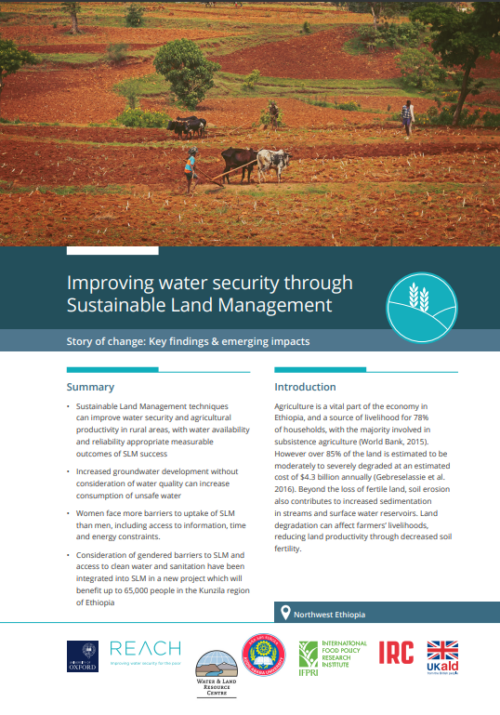by Dr Behailu Birhanu (Addis Ababa University), Dr Alemseged Tamiru Haile (International Water Management Institute), Dr Meron Teferi Taye (International Water Management Institute) and Yonas Tafesse (International Water Management Institute)
Ethiopia, endowed with substantial water resources, nonetheless confronts a spectrum of challenges in guaranteeing water security for its population. These challenges transcend simple physical water scarcity, weaving together a complex fabric of factors including insufficient infrastructure, financial constraints, burgeoning population growth, the repercussions of climate change and weather extremes, and suboptimal water management practices.
Despite concerted efforts from both governmental and non-governmental bodies, Ethiopia battles against persistent water-related issues such as restricted access to potable water, inequitable distribution, declining water quality, and a pronounced vulnerability to the extremities of drought and flooding. These persistent challenges deepen socio-economic divides, disproportionately affecting low income urban settlers, rural locales, women, and marginalized communities. The discourse on water security is broad, and while various facets of it might be critiqued for inefficiencies or limitations, it is the conventional stakeholder engagement strategies, mostly dictated by funders and researchers within the water sector, that particularly call for scrutiny.
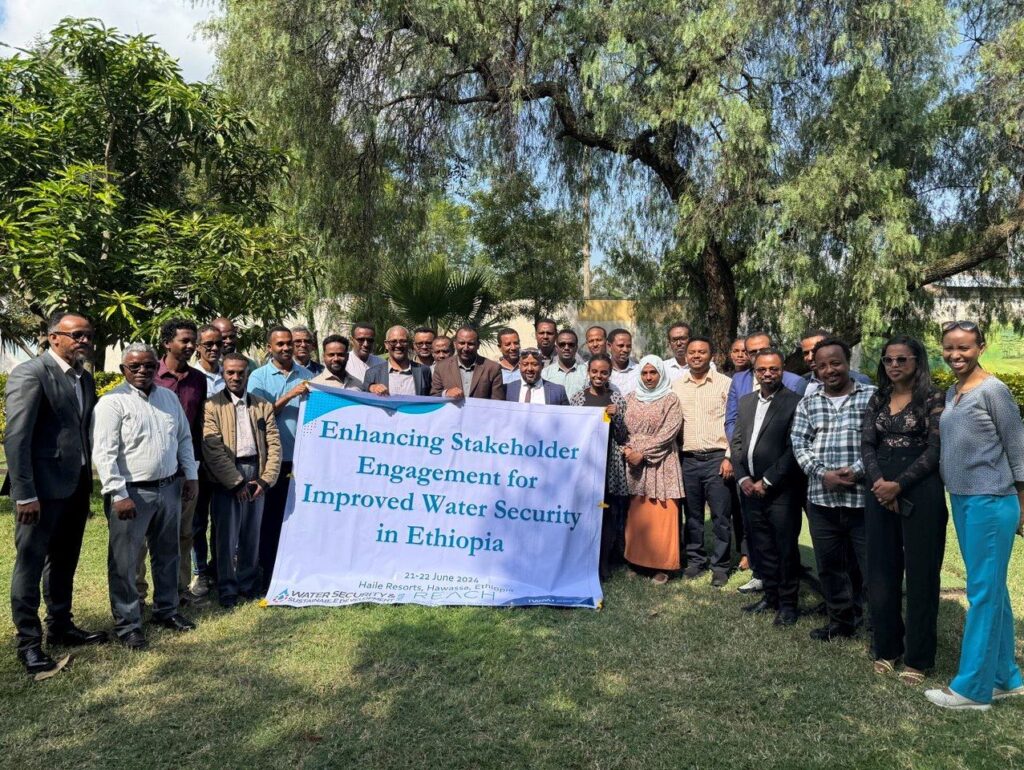
Workshop participants from MoWE, MoPD, MILL, EPA, AAWSA, Addis Ababa Mayor Office, AAU, IWMI, Rift Valley Basin Office, NGOs, Private company, ACEWM, EIWR
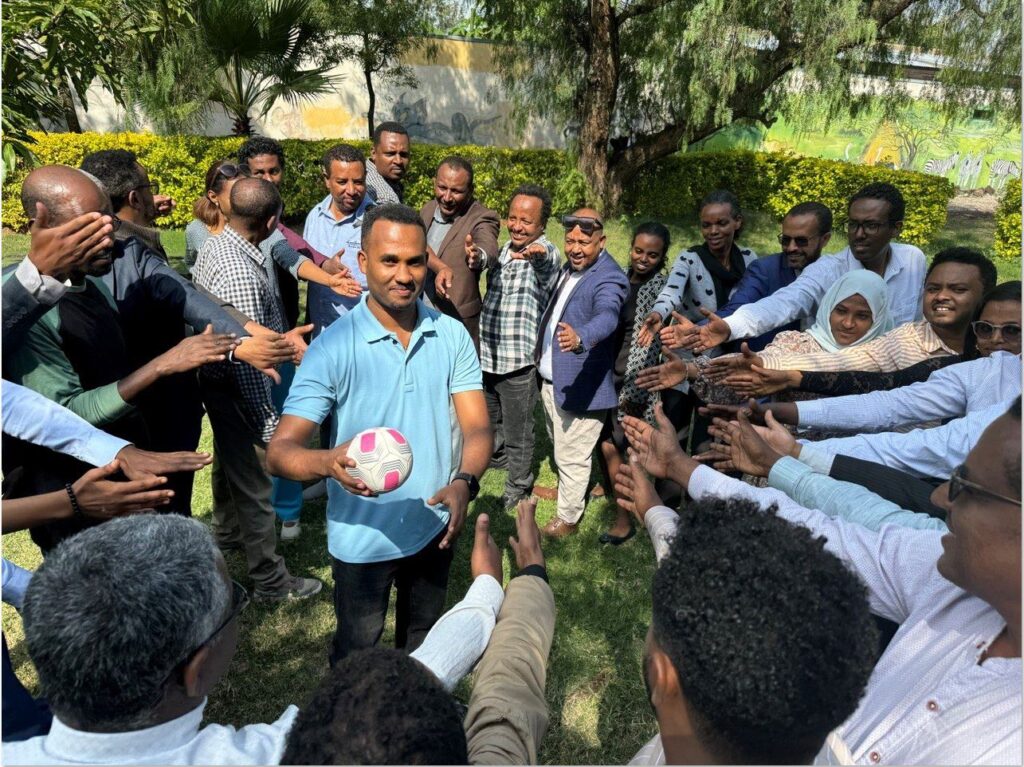
Team-building activities allowed participants to get to know each other, connect, and build trust. They brought this high energy and collaborative spirit to the rest of the activities, encouraging us to find new solutions to existing problems.
On June 21 and 22, a two-day workshop was organized by the International Water Management Institute (IWMI) to conduct multi-stakeholder dialogue on stakeholder engagement strategies. The workshop was funded by the REACH programme of the University of Oxford with support from the Water Security and Sustainable Development Hub (GCRF).
The workshop brought together the diverse expertise and experiences of over 30 participants from various sectors, including academic institutions, private companies, NGOs, ministries, basin offices, city authorities, and research organizations. The aims were to characterize the existing stakeholder engagement modalities in the Ethiopian water sector with a focus on the type and level of stakeholder engagement; to evaluate existing stakeholder engagement modalities, considering their effectiveness, inclusivity, and responsiveness; to explore innovative and participatory approaches to stakeholder engagement that can address the identified challenges and foster collective action; and to develop actionable recommendations and guidelines for enhancing stakeholder engagement practices.
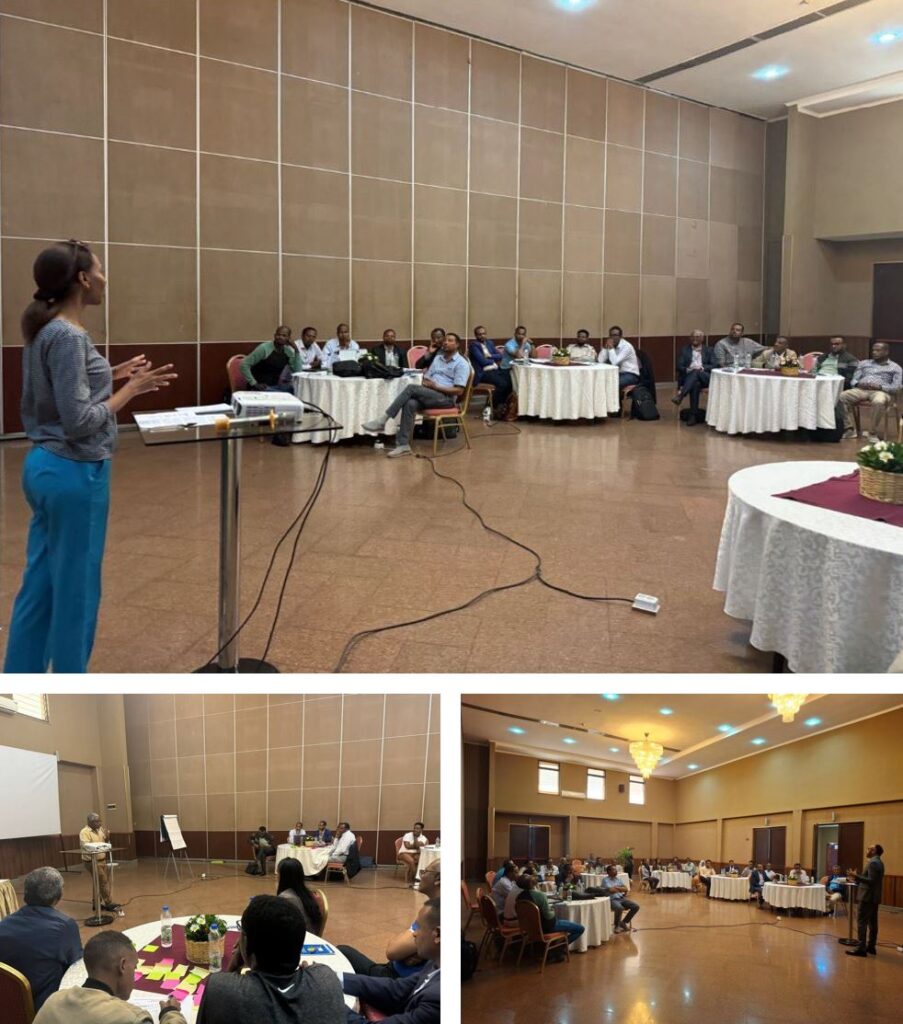
Workshop organizers providing the background context of the workshop objectives to the participants (Clockwise from top: Dr Meron Teferi Taye, Dr Alemseged Tamiru Haile, Dr Behailu Birhanu).
Existing Stakeholders‘ Engagements in the Water Sector
In Ethiopia, many actors play various uncoordinated roles in the water sector, be it knowledge generation, best practice promotion, good practice adoption, or influencing policy environments. Leveraging past experiences is relatively uncommon, as many initiatives tend to start from scratch. Actors come from governmental bodies, non-governmental organizations (NGOs) and civil societies, universities, the private sector, and the community. There are customary ways different institutions have undertaken various water research and disseminated the same to concerned stakeholders with the intent of sharing research findings, promoting experiences, and exchanging innovative water solutions. Though these efforts might have impacted some aspects, they have not resulted in meaningful improvements to the level expected both in terms of influencing actions and policy formulation of the water sector of the country.
It was stressed that current stakeholder engagement practices are generally inadequate, with a lack of ownership in advancing water security agendas. This is due to several factors, including uncoordinated planning and integration, the absence of an effective communication strategy, accountability gaps resulting from inefficient bylaws, overlapping mandates among governing bodies, institutional instability, and insufficient financial resources.
What should be done?
Critical problems around existing stakeholders’ engagement modalities necessitate a thorough examination of the suitability, inclusivity, and adaptiveness of these engagement practices to meet the dynamic needs of Ethiopia’s diverse water stakeholders. There is a pressing need to reassess and revitalize stakeholder engagement, grounded in the understanding that enduring solutions to water management are fundamentally collaborative and require inclusive decision-making frameworks.

Word Cloud highlights important aspects that need to be considered in an effective stakeholders’ engagement strategy as suggested by the workshop participants. Communication, Commitment, Coordination, Inclusivity, and a sense of ownership are the ones that stand out.
Workshop delegates emphasized the need to:
1.Carefully assess the mandates and performances of existing stakeholder engagement platforms and map key water sector actors;
2.Use this information to establish a new technical working group on water security for stakeholder engagement;
3.Identify the sector’s priority agendas;
4.Develop a national-level stakeholders’ engagement regulatory framework;
5.Produce institutional stakeholder engagement directives; and
6.Develop a stakeholder engagement communication strategy. (On this the Ministry of Water and Energy (MoWE) suggested taking the leading role together with the Ministry of Planning and Development.)
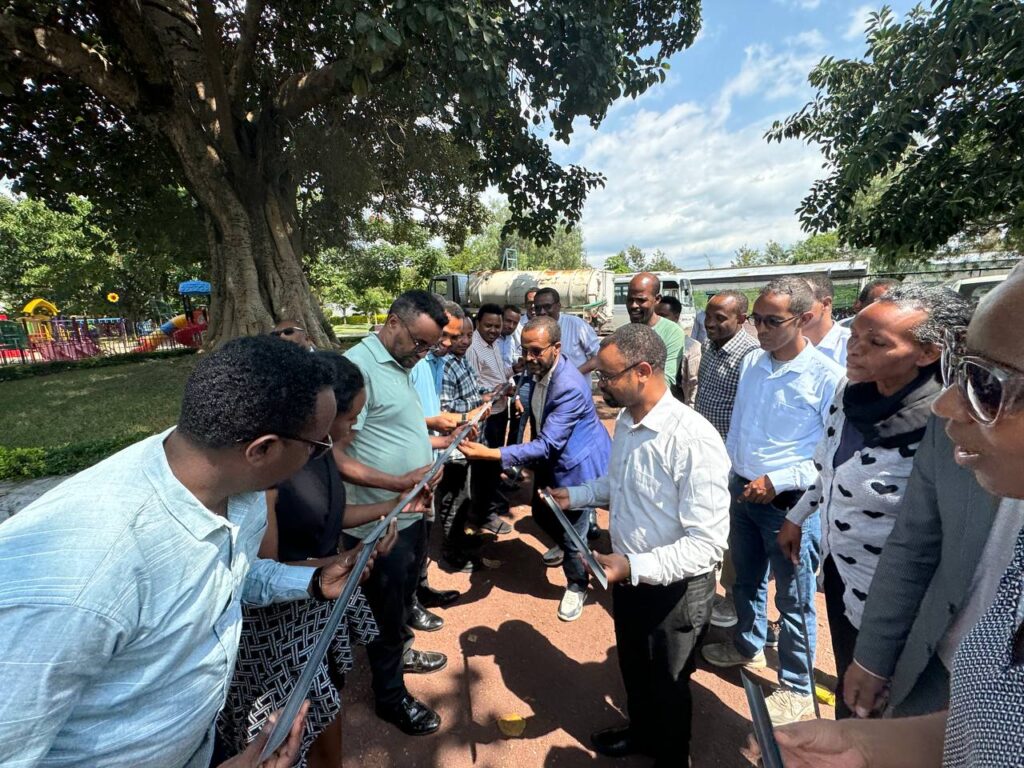
“Our meticulous review of prevailing engagement strategies has meaningfully resulted in the endorsement of forward-looking solutions for water security problems, thereby shifting our modalities towards a more inclusive, equitable, and resilient approach to water management”
Mr. Debebe Deferso, Lead Executive Officer for Hydrology and Basin Information with MoWE
The discussion on more efficient stakeholder engagement modalities in the water sector should continue, aiming to foster best practices from around the globe. This ongoing dialogue should emphasize the formulation of structured strategies to engage relevant stakeholders effectively, ensuring that all voices are heard and integrated into the decision-making process.
In Ethiopia, the need for better-coordinated and well-thought-out stakeholder engagement is critical to addressing the multifaceted water challenges. Effective stakeholder engagement can help in identifying and implementing sustainable solutions, enhancing communication among stakeholders, and ensuring accountability. By drawing on global best practices and tailoring them to the local context, Ethiopia can improve its water security and management, ultimately benefiting its population and ecosystems.
Selected REACH outputs
Birhanu, B., Kebede, S., Charles, K., Taye, M., Atlaw, A. and Birhane, M. 2021. Impact of natural and anthropogenic stresses on surface and groundwater supply sources of the upper Awash sub-basin, central Ethiopia. Frontiers in Earth Science, 9: 656726. doi: 10.3389/feart.2021.656726
Kebede, S., Hailu, K., Siraj, A. and Birhanu, B. 2023. Environmental isotopes (δ18O–δ2H, 222Rn) and electrical conductivity in backtracking sources of urban pipe water, monitoring the stability of water quality and estimating
pipe water residence time. Frontiers in Water, 5: 27. doi:10.3389/frwa.2023.1066055
Taye, M.T., Haile, A.T., Dessalegn, M., Nigussie, L., Bekele, T.W., Nicol, A., Dyer, E. & Tekleab, S. 2024. Policy and practice recommendations on flood risk management in the Awash basin. REACH Discussion brief.
Zeleke, G., Naafs, A. and Charles, K. (2023). Improving water security through Sustainable Land Management. REACH Story of Change. Available in English and Amharic.

